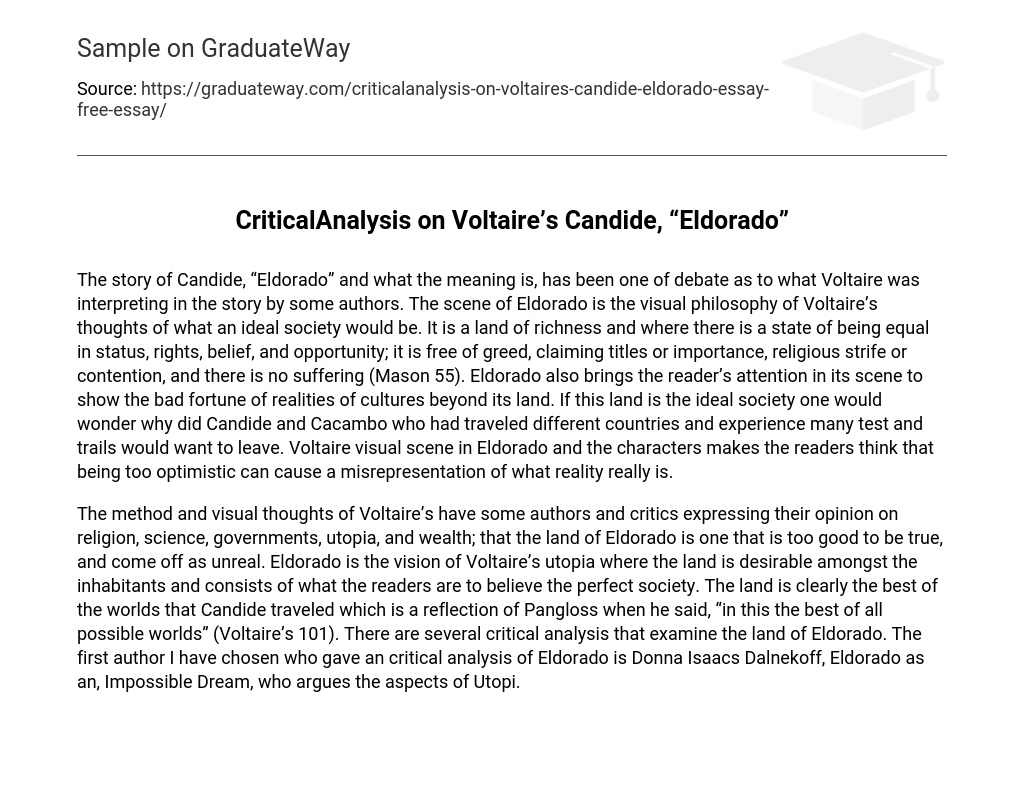The debate over the meaning of Voltaire’s story Candide, specifically the “Eldorado” scene, has sparked discussion among various authors. Eldorado is presented as Voltaire’s vision of an ideal society – a place where everyone is equal in status, rights, belief, and opportunity. It is a utopia free from greed, social hierarchies, religious conflict, and suffering (Mason 55). However, Eldorado also serves to contrast the harsh realities of other cultures. Despite its perfection, readers question why Candide and Cacambo, who have traveled extensively and faced numerous trials, would want to leave. Voltaire’s depiction of Eldorado and its characters suggests that excessive optimism can lead to a distorted perspective of reality.
Voltaire’s method and visual thoughts have led to various opinions on religion, science, governments, utopia, and wealth. Some authors and critics view Voltaire’s depiction of the land of Eldorado as too good to be true and unrealistic. Eldorado is Voltaire’s vision of a utopia, a land that the inhabitants find desirable and that represents the perfect society. It is the best of all the worlds that Candide encounters on his journey, reflecting Pangloss’s belief that it is “the best of all possible worlds” (Voltaire’s 101). Numerous critical analyses have been written about Eldorado. One such analysis is Donna Isaacs Dalnekoff’s “Eldorado as an Impossible Dream,” in which she discusses the aspects of Utopia.





